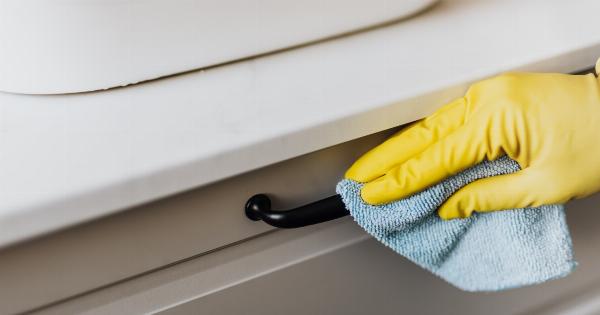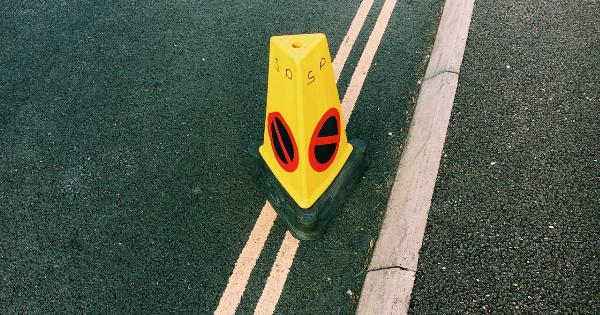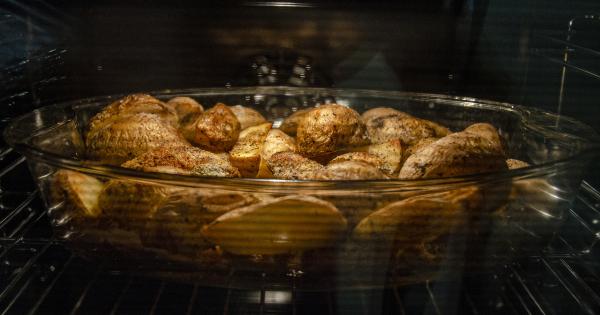Diarrhea is a common digestive problem that affects people of all ages. It is characterized by loose, watery stools that occur more frequently than usual.
While most cases of diarrhea are mild and resolve on their own, it is important to know how to manage the condition to prevent dehydration and other complications. In this article, we will discuss what to do when faced with diarrhea and provide some useful tips for managing the condition effectively.
1. Stay Hydrated
One of the most important things you can do when you have diarrhea is to stay hydrated. Diarrhea can cause a significant loss of fluids and electrolytes from your body, leading to dehydration.
Make sure to drink plenty of liquids such as water, clear broths, herbal tea, and electrolyte-rich drinks like sports drinks or oral rehydration solutions.
2. Rest and Take It Easy
Your body needs time to recover from diarrhea, so it is important to rest and take it easy until the symptoms subside. Avoid strenuous activities that can worsen your symptoms and allow your body to heal.
3. Follow the BRAT Diet
The BRAT diet (bananas, rice, applesauce, and toast) is often recommended for managing diarrhea. These foods are easy to digest and can help firm up loose stools.
Additionally, you may also include other low-fiber, bland foods such as boiled potatoes, cooked carrots, and boiled chicken in your diet until your symptoms improve.
4. Avoid Certain Foods and Beverages
While some foods can help manage diarrhea, others can worsen the symptoms. It is best to avoid spicy foods, greasy or fried foods, dairy products, caffeine, alcohol, and high-fiber foods until your digestion returns to normal.
These foods can irritate your digestive system and make your symptoms worse.
5. Use Anti-Diarrheal Medications with Caution
Over-the-counter anti-diarrheal medications can provide temporary relief from diarrhea, but they are not suitable for everyone.
If you have a high fever, blood in the stools, or severe abdominal pain, it is important to consult a healthcare professional before taking any medications. Anti-diarrheal medications should also be used with caution in children, pregnant women, and individuals with certain medical conditions.
6. Practice Good Hygiene
Proper hygiene is essential when managing diarrhea to prevent the spread of infections. Wash your hands thoroughly with soap and water after using the bathroom, before preparing or eating food, and after changing diapers.
This reduces the risk of contaminating surfaces and spreading harmful bacteria or viruses.
7. Consider Probiotics
Probiotics are beneficial bacteria that can help restore the balance of your gut flora and improve digestive health. They are available as supplements or can be found in certain fermented foods such as yogurt, kefir, and sauerkraut.
Probiotics may help reduce the duration and severity of diarrhea, but it is important to choose a reliable product and consult a healthcare professional before starting any probiotic regimen.
8. Stay Away from Dehydrating Beverages
Some beverages can worsen diarrhea by dehydrating your body further. It is best to avoid drinks that contain caffeine, alcohol, or excessive sugar as they can increase fluid loss and make you more dehydrated.
Stick to water, herbal tea, or electrolyte-rich beverages to replenish the lost fluids.
9. Keep Track of Your Symptoms
Monitoring your symptoms and keeping track of their duration and severity can help you determine when it is necessary to seek medical attention.
If your diarrhea persists for more than a couple of days, is accompanied by severe abdominal pain or fever, or if you notice blood in your stools, it is important to consult a healthcare professional.
10. Seek Medical Help When Needed
In most cases, diarrhea resolves on its own within a few days. However, if your symptoms worsen or persist for an extended period, it is important to seek medical attention.
A healthcare professional can help determine the underlying cause of your diarrhea and recommend appropriate treatment options.






























